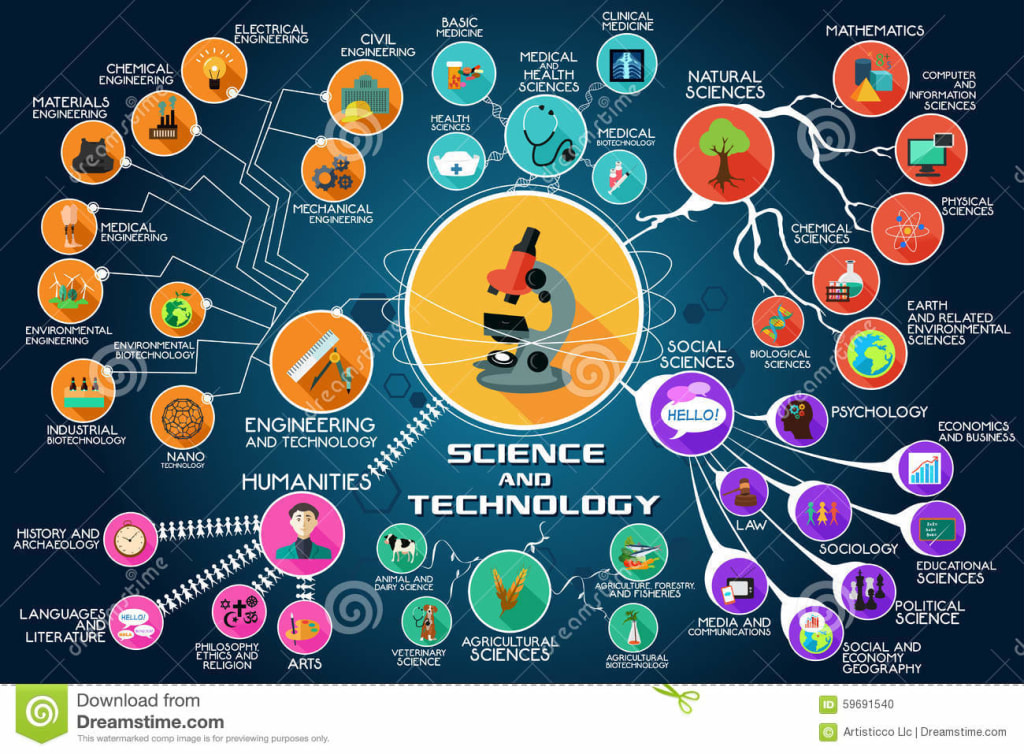
what is science ?
Science refers to a systematic and structured approach.Science is the pursuit and application of knowledge and understanding of the natural and social world following a systematic methodology based on evidence. Scientific methodology includes the following: Objective observation: Measurement and data (possibly although not necessarily using mathematics as a tool).
Science and technology
Science and technology are two interrelated fields that have a significant impact on our lives. Science refers to a systematic and structured approach to investigating and understanding the natural world and its phenomena. It involves the collection of data through observation, experimentation, and analysis, and the development of theories and laws to explain the observations.
Technology, on the other hand, refers to the application of scientific knowledge for practical purposes. It involves the creation of tools, machines, and systems to solve problems and improve our quality of life. Technology has revolutionized the way we live and work, from the invention of the wheel to the development of computers and the internet.
Science and technology open up new perspectives of understanding. Science and technology aid in the advancement of the field of education. Science and technology contribute to the development of treatment and therapeutic equipment.
purpose of science and technology:
- It will make our life easier.
- It helps us organize our daily activities.
- This helps our work can be done faster.
- It helps us to communicate more easily with others.
- This helps us to better know and understand other cultures and societies.
Science encompasses the systematic study of the structure and behaviour of the physical and natural world through observation and experiment, and technology is the application of scientific knowledge for practical purposes. Oxford Reference provides more than 210,000 concise definitions and in-depth, specialist encyclopedic entries on the wide range of subjects within these broad disciplines.
Our coverage comprises authoritative, highly accessible information on the very latest terminology, concepts, theories, techniques, people, and organizations relating to all areas of science and technology—from astronomy, engineering, physics, computer science, and mathematics, to life and earth sciences, chemistry, environmental science, biology, and psychology. Written by trusted experts for researchers at every level, entries are complemented by illustrative line drawings, equations, and charts wherever useful.
Why science is important?
- Science Increases our Fundamental Knowledge.
- New Technology.
- Creates New Applications.
- Science Allows us to Share Ideas.
- Helps us Understand Our World Even Better.
- Importance to School Students.
What are examples of science and technology?
Science and Technology Examples
The invention of the microscope: The invention of the microscope in the 16th century allowed Robert Hooke to investigate the structure of the microworld. Nuclear physics: Developments in quantum physics lead to the discovery of the processes of nuclear fusion and fission.
Some Amazing Science Facts
- The oceans produce the majority of the oxygen on Earth. ...
- Soil is full of life. ...
- Bananas are radioactive. ...
- Water can exist in three states at the same time. ...
- Helium has the ability to work against gravity. ...
- Humans have inherited genes from other species. ...
- Human Body. ...
- Animals and Insects.
Scientific technology
In schools, new technology can help students to understand science and make ideas that were previously banished to the pages of books, a visible or tangible reality. Technology undoubtedly makes the learning process more interactive and therefore more interesting and memorable.
Why is it called science?
"It originally came from the Latin word scientia which meant knowledge, a knowing, expertness, or experience. By the late 14th century, science meant, in English, collective knowledge. But it has consistently carried the meaning of being a socially embedded activity: people seeking, systematising and sharing knowledge"





Comments
There are no comments for this story
Be the first to respond and start the conversation.